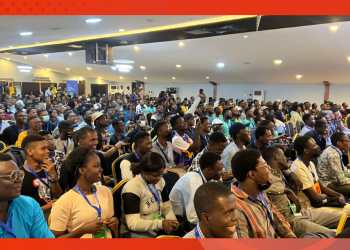While global venture capital funding dropped significantly in 2024, African startups raised $2.8 billion across 750 deals down from 2023 but showing remarkable resilience. The real story is in how smart founders turn Africa’s unique challenges into competitive advantages.
Africa’s startup scene has evolved beyond the early hype phase. Today’s successful companies focus less on unicorn valuations and more on sustainable growth strategies that work within Africa’s complex business environment.
Nigeria’s Payment Giants Show the Blueprint
Paystack and Flutterwave didn’t become billion-dollar companies by accident. Both companies understood a fundamental fact that African startups must solve problems using locally adapted solutions.
Paystack focused intensely on Nigeria’s fragmented payment ecosystem before expanding. The company built robust infrastructure to handle unreliable internet connections and diverse payment methods. When Stripe acquired Paystack for over $200 million, it wasn’t just buying technology, it was buying deep market knowledge.
Flutterwave took a different approach. The company positioned itself as infrastructure for other African businesses from day one. By 2024, Flutterwave processed over 5.2 billion transactions, a 205% increase from the previous year. Their success came from understanding that African businesses needed payment rails that worked across 54 different countries and currencies.
Four Critical Areas Every African Startup Must Address
1. Infrastructure Adaptation Beats Infrastructure Building
Smart African startups don’t wait for perfect infrastructure. They build around existing limitations.
Take mobile connectivity as an example. While data costs remain high across most of the continent, successful companies design products that work well on 2G networks and consume minimal data. This constraint forces innovative thinking that often creates better user experiences than bandwidth-heavy alternatives.
Tomi Davies, a prominent African angel investor, points out that “infrastructure deficits in energy, transportation, and broadband prevent startups from reaching new markets efficiently.” The companies that thrive accept this reality and design accordingly.
2. Talent Development Through Strategic Partnerships
Africa faces significant talent shortages, particularly in technical fields. Brain drain continues as skilled professionals leave for opportunities abroad. The most successful startups solve this through creative talent strategies.
Some companies partner directly with universities to create custom training programs. Others establish remote work policies that allow them to tap into diaspora talent while maintaining African operations. A few have built internal training academies that develop specific skills their businesses need.
The key insight here is to treat talent development as a core business function, not an HR afterthought. Companies that invest heavily in people development often find themselves with competitive advantages that are difficult for competitors to replicate.
3. Funding Beyond Traditional Venture Capital
African startups secured $1.04 billion in fintech funding alone during 2024, but funding extends far beyond venture capital. Smart startups diversify their capital sources.
Revenue-based financing has gained traction for companies with predictable cash flows. Development finance institutions offer patient capital for startups solving social problems. Some successful companies bootstrap longer than their Silicon Valley counterparts, maintaining higher ownership percentages.
The funding constraint forces discipline. African startups often achieve profitability faster than companies in other regions because they can’t rely on unlimited cash injections to solve operational problems.
4. Market Expansion Through Strategic Localization
Africa isn’t a single market. It’s a 54 different countries with diverse cultures, languages, and economic conditions. The startups that scale successfully understand this complexity.
In 2024, African startups expanded into 38 new markets, more than double the previous year. Nigeria led these expansions, with companies seeking to diversify revenue streams amid local economic challenges.
Successful expansion requires more than translating interfaces into local languages. It means understanding different regulatory environments, payment preferences, and customer behaviors. Companies that nail this localization often find themselves with natural moats against international competitors who underestimate these complexities.
Real Success Stories Beyond the Headlines
While Paystack and Flutterwave dominate fintech headlines, other African startups demonstrate different scaling approaches.
Andela built a global remote talent platform by recognizing Africa’s software development talent before international companies caught on. The company created thousands of high-paying jobs while serving clients worldwide.
Jumia survived its early struggles by focusing on markets where it could build sustainable unit economics. Instead of trying to be everywhere, the company concentrated resources on Nigeria and other high-potential markets.
54gene built Africa’s largest genomics database by focusing on a problem unique to the continent which is the underrepresentation of African genetic data in global research.
Emerging Opportunities in Underserved Sectors
While fintech attracts the most attention, other sectors show enormous potential. Climate tech investments are expected to rise in 2025, particularly in renewable energy and agricultural technology.
Healthcare technology remains underfunded relative to the continent’s needs. Most African countries have insurance penetration below 3%, creating opportunities for innovative coverage models.
Education technology companies are finding success by addressing Africa’s specific educational challenges rather than copying Western models.
Managing Growth in a Complex Environment
African startups face regulatory complexity that companies in more unified markets don’t experience. Each country has different compliance requirements, tax structures, and business licensing processes.
The African Continental Free Trade Area (AfCFTA) plans to create a single market across 54 countries, but implementation remains in early stages. Successful startups can’t wait for regulatory harmonization. They build legal and compliance capabilities as core competencies.
Currency volatility adds another layer of complexity. Companies operating across multiple African markets must hedge currency risks or build business models that can withstand significant exchange rate fluctuations.
Investment Relationship Management as Growth Driver
Effective investor relations extend far beyond raising capital. The most successful African startups treat investor relationships as strategic partnerships.
Smart founders seek investors who bring more than money. Strategic investors can provide market access, regulatory expertise, and operational guidance that pure financial investors cannot. This approach has helped companies like Paystack and Flutterwave navigate complex international expansions.
Regular communication with investors also provides external accountability that helps startups maintain focus during challenging periods. African startups often face longer fundraising cycles than companies in other regions, making investor relationship management even more critical.
Preparing for the Next Growth Phase
M&A activity in Africa increased 34% year-over-year in 2024 as funding became more challenging. This trend will likely continue, creating opportunities for strategic consolidation.
Companies that have built sustainable businesses with clear paths to profitability will find themselves in strong positions for both organic growth and strategic acquisitions. The key is building businesses that can thrive regardless of external funding availability.
The most successful African startups combine local market understanding with global operational excellence. They solve distinctly African problems while building products and services that could compete internationally.
Africa’s tech ecosystem has matured beyond the early experimental phase. The next generation of successful companies will be those that master the fundamentals such as sustainable unit economics, strong operational discipline, and deep market understanding. These companies won’t just survive Africa’s challenging business environment, they’ll use it as a competitive advantage to build truly exceptional businesses.
















